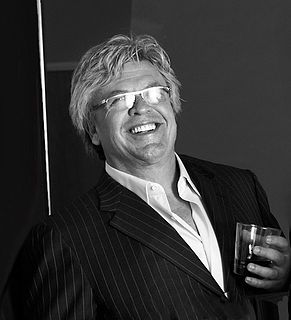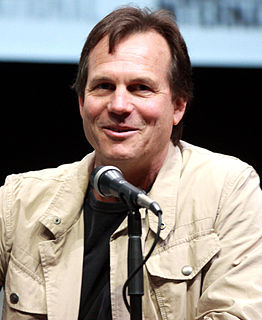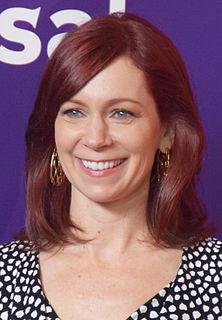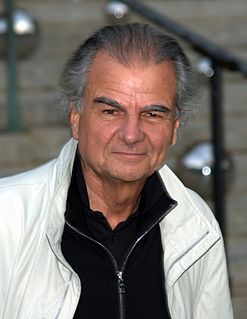A Quote by Richard Masur
Maybe if I'd gone in younger, I wouldn't have had that feeling, but I've seen an enormous amount of changes since the early-'70s in how this stuff is shot. I did the first TV movie ever shot in 18 days; before this film the normal length of shooting a TV movie was between 21 and 26 days. We shot a full-up, two-hour TV movie in 18 days with Donald Sutherland playing the lead, who had never worked on television before.
Related Quotes
After three days of shooting with Donald [ Sutherland], I was the only one he worked with for the first three days of the movie [The Winter Of Our Discontent] because of the crazy schedule. We [shot] a lot of this stuff, some of it incredibly intense and emotional. We had never had a conversation during that whole time. We didn't have time.
'True Blood' is shot on film. It's more like a movie, and they take more days to shoot it, plus it has an hour of content. 'The Good Wife' is network. They're shooting on HD. It moves quicker and they only have forty minutes of content instead of a full hour. Not to mention the difference of shooting, you know, rated-R stuff!
We shot every scene of mine in the entire movie in five days. All my coverage, everything. I left. They went back and shot everybody else around me. Insane. The part [Billie in Crazy Six] called for a handsome, coiffed cool guy romantic lead, and I showed up like you see him in the movie. And they let me do it.
It [TV] is the cancer of film. It's why people can't be educated to film. In the late '60s, we expected to see a movie or two every week and be stimulated, excited and inspired. And we did. Every week after week. Antonioni, Goddard, Truffaut - this endless list of people. And then comes television and home video. I know how to work exactly for the big screen, but it doesn't matter what I think about the art of movie-making versus TV.
I think you can make a gorgeous movie on any piece of equipment. Look at 'Tangerine,' which is a beautiful movie shot on an iPhone. You see so many movies that are impeccably shot but are vapid, and there's no audience for that except for other cinematographers who just like to watch two-hour-long music videos.
If I'm ever working on a set and anyone talks about a master shot, I say there is no master shot. Before I even went to film school, I learned about movies by being in a British feature film, where everything was shot master shot, mid-shot, close-up. But I reject the idea of a master shot. You don't shoot everything mechanically; you find imaginative ways that serve the action.
TV acting is so extremely intimate, because of the peculiar involvement of the viewer with the completion or "closing" of the TV image, that the actor must achieve a great degree of spontaneous casualness that would be irrelevant in movie and lost on the stage. For the audience participates in the inner life of the TV actor as fully as in the outer life of the movie star. Technically, TV tends to be a close-up medium. The close-up that in the movie is used for shock is, on TV, a quite casual thing.
...Nameless, unknown to me as you were, I couldn't forget your voice!' 'For how long?' 'O - ever so long. Days and days.' 'Days and days! Only days and days? O, the heart of a man! Days and days!' 'But, my dear madam, I had not known you more than a day or two. It was not a full-blown love - it was the merest bud - red, fresh, vivid, but small. It was a colossal passion in embryo. It never returned.
In TV, you are much more likely to see the episode closer to the script as written - in terms of the order of the scenes - than you would in a movie, and here's why: you don't have as many days to edit. You have 10 to 12 weeks or more to edit a feature, and you have four days to edit TV. That's a huge difference.


































